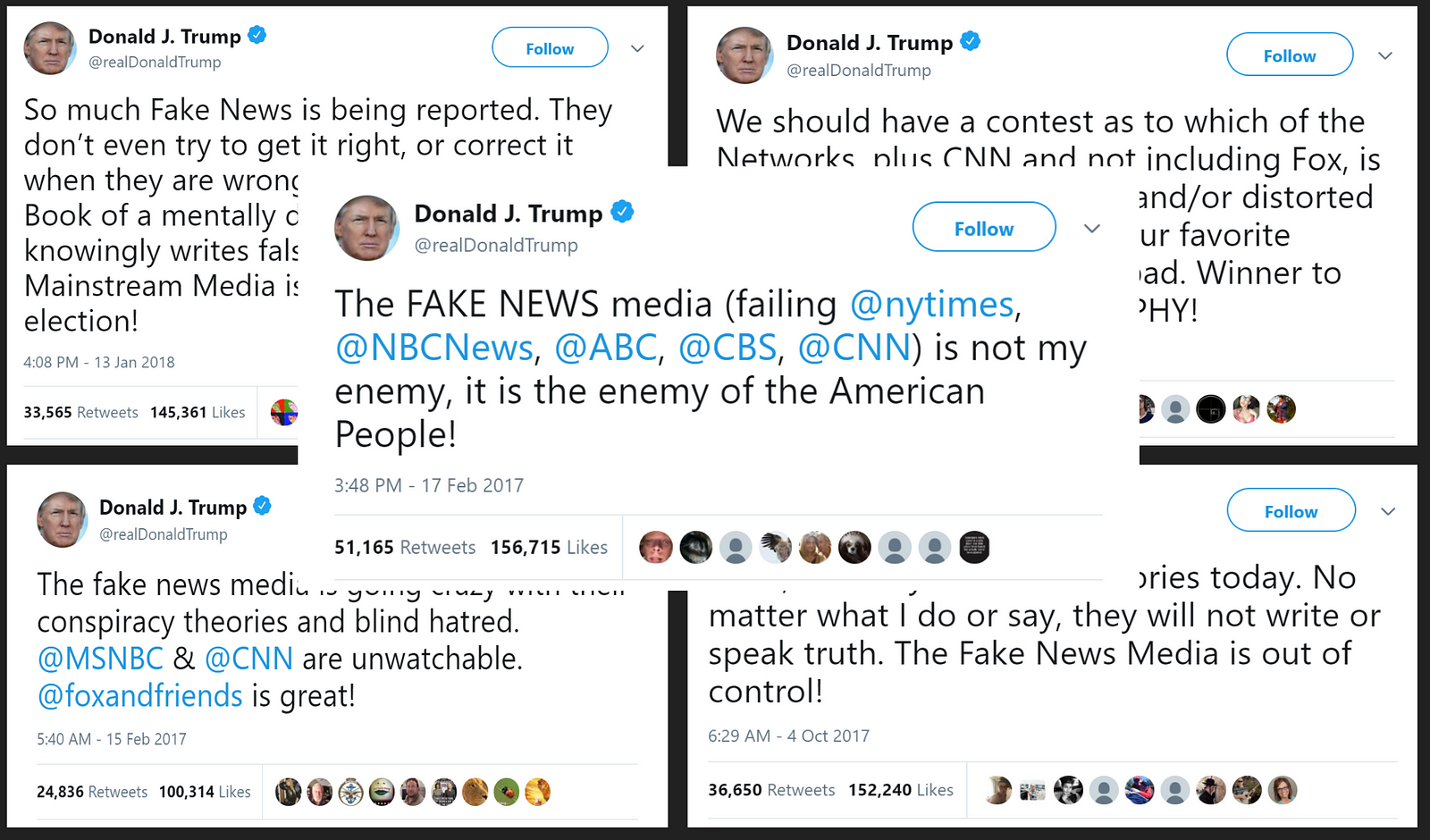Let’s talk about trust. When I was growing up, my parents, perhaps like yours, drilled a mantra into my head: never get into a car with a stranger. Don’t take food from strangers. Don’t talk to strange people on the Internet.

Sorry Mom, but I took an Uber home last night. How many of you have ever been a guest on Airbnb? And raise your hand if you’ve ever used Tinder to help you find a… friend. In short, technology has made it easier for us to connect with and trust individuals we don’t know.
However, research suggests that while we’re now more willing to trust individuals, it’s become harder for us to trust institutions. Today, I want to explore this notion of trust in one institution in particular: the media.
The buzzword these days is “fake news”. It’s often hard to figure out what is credible on the internet and what isn’t. And the truth can get buried in a sea of misinformation.

Only 44% of Americans trust the media to report the news “fully, accurately and fairly” — this masks a deep political divide: the number drops to just 19% when surveying Republicans.
So if we can trust strangers enough to get into their cars, why do we have such a hard time figuring out what kind of news we can trust?
The problem is that we’ve lost control.
We no longer have agency over what news we read, in large part due to the rise of social media. 67% of American adults get at least some of their news from social media, and 45% get at least some of their news from Facebook.
Unlike Uber or Airbnb, the services we use to consume news aren’t on demand or under our control. Most people use social media to get their news, but the things you see on Facebook and Twitter are determined by a black box algorithm.
The algorithm determines what you see, who you interact with, and ultimately, what you believe. But Facebook and Twitter have no explicit responsibilities to fact check or curb the spread of rumors. There are no standards, no verification, and it’s easy for misinformation to masquerade as the truth.
Social media was created to connect you with your friends and family, but somehow it has become a news organization and a content distributor — things it was never meant to be.
But what if we could regain control over the news we read and still guarantee credibility? (Spoiler alert: this is where Syndicator comes in.)

Syndicator is a subscription-based tool that gives readers control to directly discover, follow, and support the work of credible journalists. We maintain a list of journalists from established media outlets across the media & political spectrum. Readers can subscribe to individual journalists — you can follow a journalist on Syndicator as easily as you’d follow an artist on Spotify.
Instead of focusing on the institution that publishes the news, we focus on the person writing it. We want you to build connections with individual people instead of brands.
Syndicator also provides you with a platform to support independent, freelance research you find valuable, and learn more about a diversity of topics.
While we don’t expect this to “fix” anything instantly, we do hope to create a culture of intentionality around media consumption and an open community of journalists and readers. And perhaps one day, just as we’ve overcome our fear of getting into strangers’ cars, we can turn our mistrust of the media into a healthy curiosity for the truth.